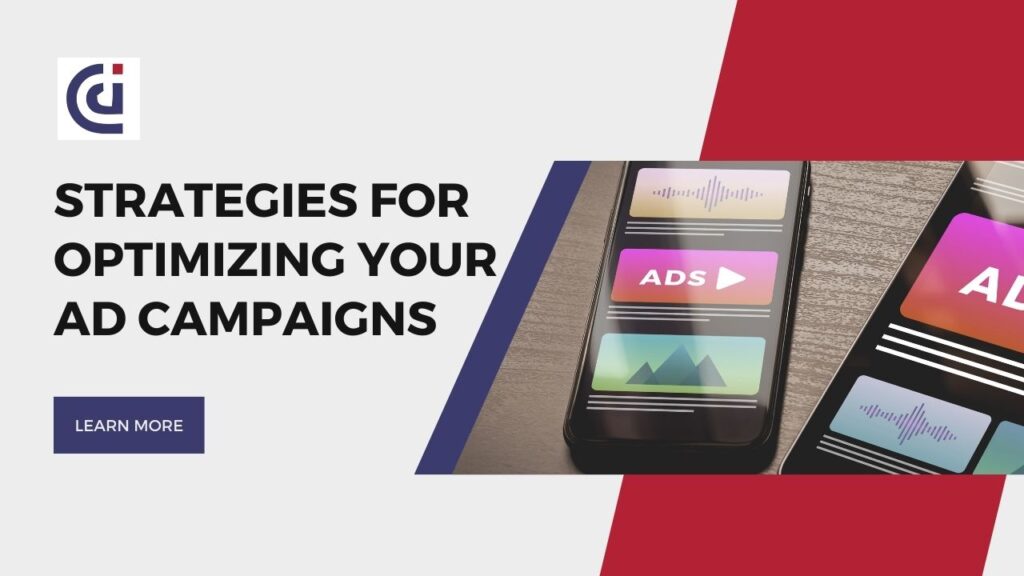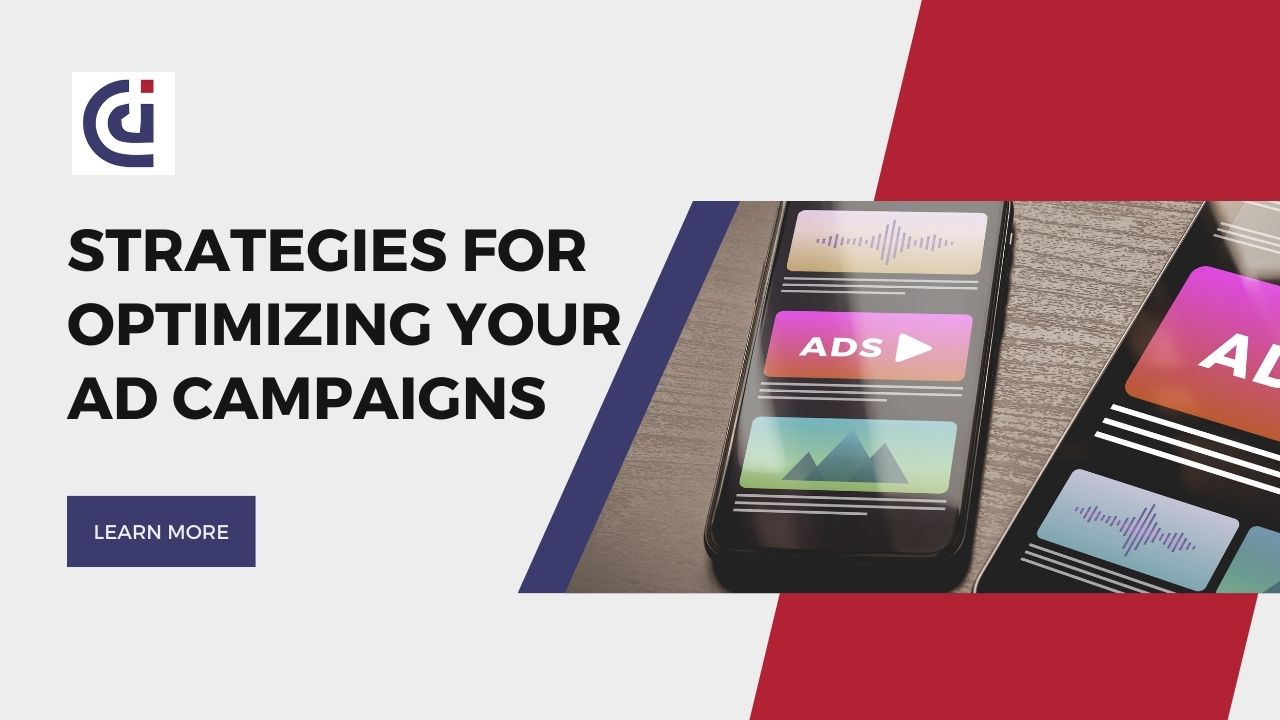
When it comes to driving traffic and conversions, optimizing your ad campaigns is crucial. Whether you are a Digital Marketer, Business Owner, Ad Manager, SEO Expert or Digital Strategies. understanding effective strategies for optimizing your ad campaigns can significantly boost your results. In this article, we will explore some valuable tactics to help you maximize the performance of your ads and reach your target audience effectively.

Strategies for Optimizing Your Ad Campaigns
1) Conduct Thorough Keyword Research:
To optimize your ad campaigns, start by conducting comprehensive keyword research. Identify relevant keywords that align with your business objectives and target audience's search intent. Utilize keyword research tools to uncover popular and high-converting keywords that you can incorporate into your ad copy and landing pages. By using targeted keywords, you can enhance your campaigns' visibility and attract the right audience.
2) Craft Compelling Ad Copy:
Compelling ad copy plays a crucial role in attracting and engaging your target audience. Craft attention-grabbing headlines and compelling ad descriptions that highlight the key benefits of your product or service. Use persuasive language, unique selling propositions, and strong calls-to-action (CTAs) to entice users to click on your ads. A well-crafted ad copy can significantly improve your click-through rate (CTR) and increase the chances of conversions.
3) Implement Ad Extensions:
Ad extensions are additional pieces of information that you can include in your ads to increase visibility and provide users with more context about your offerings. Utilize extensions like call extensions, sitelink extensions, location extensions, and review extensions, which help improve your ads' appearance and provide valuable information to potential customers. Ad extensions can increase click-through rates and boost the overall effectiveness of your campaigns. For Advertisement & Marketing Services visit Codevelop.us
4) Utilize Ad Scheduling:
Ad scheduling, also known as dayparting, allows you to display your ads at specific times of the day or on specific days of the week. By analyzing your campaign data and identifying the periods when your target audience is most active, you can strategically schedule your ads for optimal visibility and engagement. Ad scheduling ensures that your ads reach the right people at the right time, improving your campaign's efficiency and cost-effectiveness.
5) Continuously Monitor and Optimize:
Optimizing your ad campaigns is an ongoing process. Regularly monitor your campaigns' performance and analyze key metrics like click-through rate, conversion rate, cost per click, and return on investment. Identify underperforming ads and make necessary adjustments to improve their effectiveness. Split testing different ad variations can help you identify winning combinations and improve your overall campaign performance.
Conclusion
At the end Optimizing your ad campaigns is crucial to driving success in the digital marketing landscape. By conducting thorough keyword research, crafting compelling ad copy, implementing ad extensions, utilizing ad scheduling, and continuously monitoring and optimizing your campaigns, you can enhance their effectiveness and achieve better results. Incorporate these strategies into your next ad campaign and watch your success soar.
Frequently Ask Questions
Q1: What are negative keywords, and how do they work?
Negative keywords are terms that you exclude from your ad campaign. When users search for these keywords, your ad won't be displayed. They help refine your audience and improve ad relevance.
Q2: Why is Google Analytics important for ad optimization?
Google Analytics offers valuable insights into user behavior, allowing you to make data-driven decisions for your ad campaigns. It helps track the effectiveness of your ads and identifies areas for improvement.
Q3: How can I ensure a top-notch user experience for ad visitors?
To provide an excellent user experience, optimize your landing pages for speed, mobile-friendliness, and relevance. Ensure that the content aligns with your ad's promise.





Leave a Reply
Your email address will not be published.